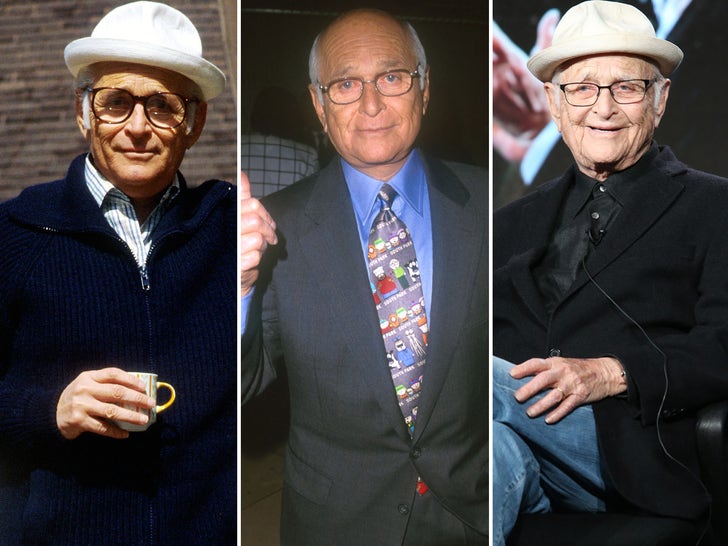BIG NAME

Norman Lear, producer of 'All in the Family,' 'The Jeffersons,' dead at 101
Lear was discharged from the Army, and in 1950, his television career began when he and his writing partner, Ed Simmons, got a job writing for The Ford Star Revue. But after just four shows, Jerry Lewis snatched up to the duo to write for him and Dean Martin on “The Colgate Comedy Hour.”
Lear also wrote for the big screen, snagging an Academy Award nomination in 1967 for “Divorce, American Style.”
However, 1970s television belonged to Lear, beginning with the debut in 1971 of “All in the Family.” The sitcom was groundbreaking in what would become a Lear trademark: using comedy to examine hot-button issues like race relations, the war in Vietnam, abortion, gay rights, and rape.
As Archie Bunker, a cantankerous, bigoted World War II veteran, Carroll O'Connor clashed weekly with Rob Reiner as his onscreen liberal son-in-law Mike “Meathead” Stivic. One of the secrets of the show's success, experts have said, was that each side of the political divide had someone to cheer for. “All in the Family” earned Lear a shelf full of awards, including four Emmys for Best Comedy series, as well as the Peabody Award in 1977.
“All in the Family led to the spin-offs “Maude” and “The Jeffersons,” as well as “Archie Bunker's Place” and the short-lived “Gloria,” starring “All in the Family's” Sally Struthers, aka Gloria Stivic, as a now single mom.
“Maude” starred Bea Arthur as Maude Findlay, Edith Bunker's cousin, who clashed with Archie on the occasions she visited 704 Hauser Street. The spin-off continued the Lear tradition of infusing social commentary into a sitcom format. In one much talked-about episode, Arthur's character debates the fate of an accidental pregnancy; ultimately, she decides to get an abortion.
“The Jeffersons” centered on the Bunkers' African-American neighbors after they "moved on up" from Queens to the East Side. Like Bunker, Sherman Hemsley's equally hard-headed self-made man, George Jefferson, clashed with his more progressive son Lionel, in a world that was changing around him.
In 1974, Lear created “Good Times,” about an African American family in Chicago. That series tackled issues like poverty, drug use, and inner-city crime. Lear's Midas touch also brought a British import, “Steptoe and Son” -- here titled “Sanford and Son,” starring comic Redd Foxx -- to further small-screen success.
Less successful but critically acclaimed was Lear’s 1976 satirical soap sitcom “Mary Hartman, Mary Hartman.”
Lear was also an activist, and in 1980 created the non-profit People for the American Way, which was dedicated to supporting the Bill of Rights and to monitor violations of constitutional freedoms. According to his personal website, Lear also founded the non-profit charity Business Enterprise Trust and the Environmental Media Association, designed to get the entertainment industry more "green."
In 1999, President Clinton presented Lear with the National Medal of Arts, declaring, "Norman Lear has held up a mirror to American society and changed the way we look at it."
Still thriving as he approached 100, Lear in recent years shepherded both a Latina-led remake of “One Day at a Time” for Netflix, and successful, star-studded productions of both “All in the Family” and “The Jeffersons” on ABC's well-received “LIVE from a Studio Audience” specials. He also hosted a podcast titled “All of the Above with Norman Lear.”